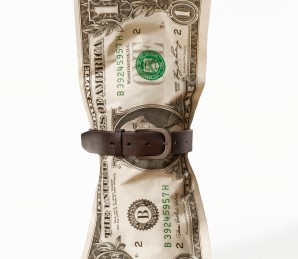04 June, 2012
Every once in a while a research paper crosses my desk that particularly catches my eye. With all the talk about the end of cash as a payment form, I thought the following paper, funded and provided by Scan Coin would be of interest to our readers. With the permission of the owners, we gladly offer our readers a detailed re-post of the paper. For reasons of length, we chose not to include the research data itself. For those of you who have an interest to review the base data, you can request a copy of the report here.
… by permission of Per Lundin, President Scan Coin…
Cash, cash, cash. You’d think the way people talk about the death of cheques, the continued rise of debit cards and the advent of mobile payments, that cash was on its way out. The trouble is, not only is that not true, but cash accounts for 55.2% of all transactions, according to the British Retail Consortium’s own figures. Added to which, according to the Way We Pay 2010 survey by The Payments Council, cash is still popular in six in ten transactions.
Cash is here to stay and remains a management issue for retailers. How they handle, count, store and manage cash is as pressing as ever and as they look for ways to cut their costs in a depressed economy, it must be pointed out that when it comes to handling costs, cash is still cheaper than any other form of payment.
As the British Retail Consortium points out, each cash transaction (whatever the value) now costs the retailer an average of 1.7 pence per transaction to handle (down by 17.4% in 2009 from 2.1 pence). An inconvenient truth no doubt for those who believe that all money should be represented electronically.
Whilst cash accounts for 55.2% of transactions, it only accounts for 11.5% of costs, which may seem counterintuitive given the sheer physicality of cash compared to cards – float it, receive it, store it, move it, count it, move it again, bank it and then start all over again. The truth is simpler, it actually costs less to handle cash than card payments, taking all costs into account.
These are general industry views that seem to take little account of how consumers think and feel, which is why we commissioned our own research through Fieldworks to ask them directly. Money has, and will always be, a highly emotive issue. Attempts by companies to take decisions without fully consulting consumers are likely to fail, or not deliver on the anticipated results.
Retailers are always focused on their costs, never more so than in 2012 which is predicted to be both tough and uncertain. Already dissatisfied at the commission charges levied by the banks and acquirers, they will definitely want to know the facts about money management.
Our business concerns itself with the management of cash throughout the business; we help retailers remove as many handling processes as possible, in order to demonstrate faster in-store cash flow management, increased accuracy, a rapid and significant return on investment, and deliver a better customer experience.
Taking cash out of the equation at various key stages in its journey from customer to back office, has a further major benefit – it is protected from fraud.
The 2011 BRC Retail Crime Survey shows that retail crime cost UK retailers £1.4 billion in 2011/12, 59.6% of which is accounted for as customer theft. The retailer’s challenge is to reduce this loss without affecting the in-store operation and without major capital expenditure.
Cash payments accounted for 78% of Europe’s €388 billion retail payment transactions in 2008 and cash is expected to remain the predominant payment method for some years to come.
According to research by the British Retail Consortium, released in mid 2011 :
- Cash accounts for 55.2% of transactions – yet only accounts for 11.5% of Costs
- Debit cards account for 34% of transactions – and accounts for 37.5% of Costs (despite a fall in costs as a result of the introduction of new technology and loss prevention systems)
- Credit cards account for only 9.95% of transactions – but account for a staggering 44.5% of costs
- Debit Cards up 15.8%
- Cash down 5.2%
- Credit Cards down 12.9%
- Cheques down 55%
- Debit Cards up 3.6%
- Cash up 1.96%
- Credit Cards down 7.6%
- Cheques down 66.7%
The time spent in processing cash as opposed to a card payment was not factored into the BRC research, however, it is significant when one considers, as retailers do, how much extra turnover can be earned by getting customers through the checkout more quickly.
Recent research has shown that the average time taken to process a cash transaction at point of sale is 27.2 seconds compared to 39.4 seconds for a card payment. Therefore the argument should be not about dogma (when can we move from cash to cards) but about turnover and profit (should I encourage my customers to pay by cash, or at least make it much easier for them to pay by cash?)
As an example of how seriously the supermarket chains Tesco and Morrisons take queue speeds, both use the checkout captain model, where a member of staff is empowered to open lanes when the store is busy. In addition, both companies use infra-red cameras that monitor queue lengths, feeding the information back to store managers so they can plan checkout coverage.
But what of the consumer? SCAN COIN commissioned Fieldworks to speak to a small sample of shoppers in the South East in the run up to Christmas 2011 to hear their attitudes towards cash.
The survey into our attitudes to cash reveals that we now think about money quite differently from 20 or even 10 years ago.
According to research by the Payments Council in 2011, people prefer to use cash when they are buying low- value items, with 77% of people still opting for notes and coins for purchases of less than £3. It also found that while 83% of people aged over 55 would use cash when buying something for up to £3, 12% of under 35s would use a debit card.
The Payments Council also found that 54% of people remove loose  change from their wallets and purses and keep it at home, with a fifth of these only removing coppers, around 70% said they did not carry anything smaller than a 50p coin.
Whereas 40% of these people said they took their loose change to the bank, 43% admitted they rarely got around to counting up their coins and paying them into an account or converting them into notes, while 12% said they donated the money to charity.
Among our own sample of 200 shoppers in the 16- 24, 25-45 and over 45 categories, two-thirds believe that notes and coins will never disappear within any reasonable timescale, despite the growth of cards and mobile phones. People pay in cash for a wide variety of purchases, in some cases over £1000. A relatively small number of people will use a card to pay for purchases under £5.
In the store, retailers have responded to how people want to pay in a variety of ways, all focused on cutting queues and providing choice. Recent attempts by retailers to cut queues and provide customers choice in the way they pay have accelerated. Customers have been quick to take advantage of different forms of automation. In the research, 27% had used some kind of coin machine to pay for items.
‘two-thirds believe that notes and coins will never disappear within any reasonable timescale, despite the growth of cards and mobile phones’
However, as the research shows, while customers welcome the convenience of self-checkout, they also accept a huge drop in customer service when compared to manned checkouts.










